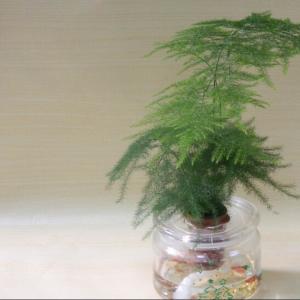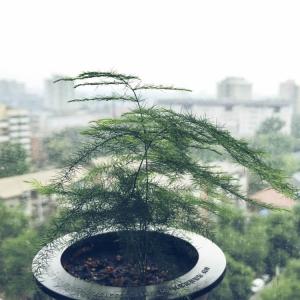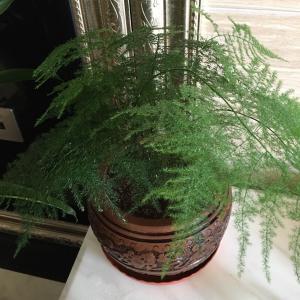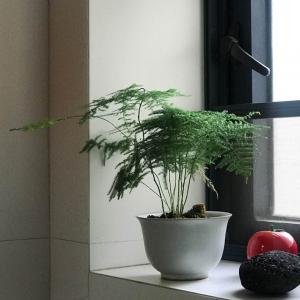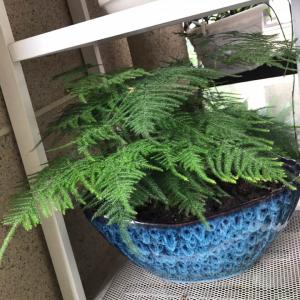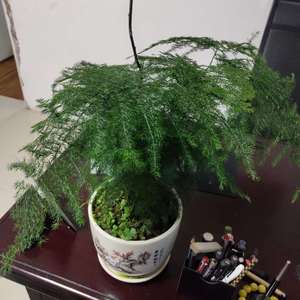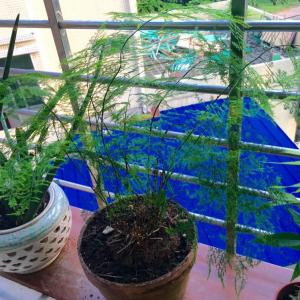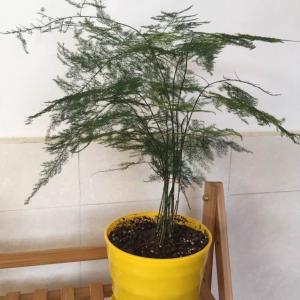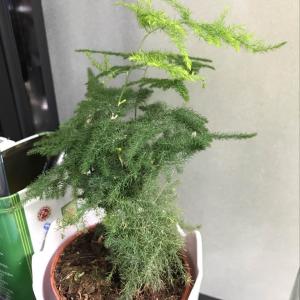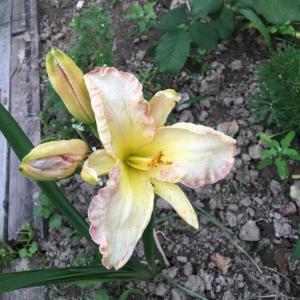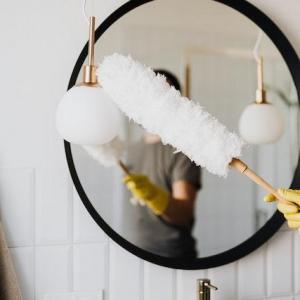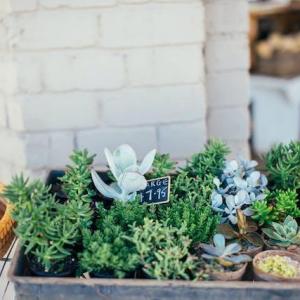Posts (312)
气泡布鲁鲁
09-03

1. Cleanser
Whether you have an oily or dry skincare routine, a cleanser comes in first, especially when taking off makeup. The makeup and dirt can be broken down with the use of micellar water or an oil-based cleaner. These skincare products penetrate your pores and remove the harmful impurities that have built up there.2. Facewash
Koreans have long practised double cleaning, which is a MUST in the realm of beauty and skincare. A layer of micellar water or oil cannot simply be removed from your face with normal water. To stop these products from further clogging your pores, cleanse your face first. A more healthy and sustainable alternative to face wash is a skin care soap.3. Moisturizer
A good moisturiser is a cream that will hide all the layers underneath. However, you might be questioning if moisturising cream is necessary for acne-prone skin. Absolutely, yes! Everyone should use a moisturiser; those with a gel base are for oily skin, while those with a cream base are for dry skin.4. Sunscreen
Sunscreen is a need all year round. Use it each and every day! The skin is always exposed to dangerous UV radiation, even when you aren't going outside. You may protect yourself from the sun and delay ageing by using sunscreen. The recommended range by skincare experts is an SPF of 30 and above.5. Facial Oil
A face oil gives your skin extra radiance. Your final skincare step before going to bed can be this. While the body is at rest, a number of oils that include organic skincare components work to nourish and heal the skin.6. Self Tanner
If you enjoy the way you look tanned, use a self-tanner. You prematurely age your skin whenever you tan, whether inside or outside. Your chance of developing skin cancer also rises. You may achieve the look you want with a self-tanner without taking any risks. Even when using a self-tanner, you need to protect your skin from the sun to maintain its health.7. Refrain from scrubbing your skin clean
Scrubbing your skin could seem normal if you've been dripping with sweat a lot or have a severe case of acne. Don't! Scrubbing causes skin irritation, which aggravates all skin conditions, including acne.8. Stress Less
Your skin can benefit from learning appropriate stress management techniques. When a person is under a lot of stress, certain skin conditions, such as psoriasis and atopic dermatitis (eczema), may appear for the first time. Acne, eczema, psoriasis, and rosacea are just a few of the skin problems that can flare up when under stress. Always approach your skincare holistically. Because all of our bodily processes are coordinated, you must provide them with both internal and external nutrition. It can be challenging to practise proper skin care. Keep in mind that striving for "perfect" skin is essentially useless. Love your skin and use these tips to make informed choices about your specific skin needs.
Article
气泡布鲁鲁
09-03

Tips For Winter Skin Care
1. Use Lukewarm Water
When the temperature drops, it is highly tempting to take hot showers. But stay away from them if you love your skin. Instead, use lukewarm water to shower and wash your face. Your skin dries up rapidly after a hot shower, and if you don't moisturise it right away, it could crack and get winter eczema. Apply a moisturiser containing hyaluronic acid and ceramides after taking a lukewarm shower. As a result, the moisture barrier will remain intact and dryness won't occur.2. Retain hydration
The air is drier in the winter, whether it's outside or inside your house. Water easily evaporates from your body as a result. You must therefore maintain your skin's moisture. In order to control the humidity in your home, you may also install a humidifier. Your skin will remain healthy if you do this.3. Select Skin Care Products Carefully
What made your skin happy in the summer may make it unhappy in the winter. You must adjust your skin care regimen properly, for this reason. Using gentle skin care products is the secret to having healthy, radiant skin in the winter. To prevent removing your skin's natural moisture barrier, choose cleansers with moisturisers. Use ceramides, hyaluronic acid, hydration serums, and glycerin-containing products to help rebuild the skin's moisture barrier if you have acne or outbreaks.4. Protect Your Skin.
If you are going outside in the winter, you need to protect your skin from the wind, snow, and rain. Wear gloves and hats, and don't forget to apply sunscreen. Although the warm sun rays feel pleasant, the UV rays can nevertheless cause serious skin harm. Choose a sunscreen that has zinc oxide or titanium dioxide.5. Avoid over-exfoliating your skin.
Getting rid of dead skin cells on the skin involves exfoliation. Winter requires caution because the dry and chilly weather has already damaged your skin's protective barrier. It's okay to exfoliate your skin once per week as this promotes skin regeneration and improves product absorption. Lightly exfoliate your skin if you have really dry skin. Once a week is sufficient if you have combination and oily skin.6. Don't Forget The Hands
Compared to the skin on any other area of your body, the skin on your hands has less oil glands. Your hands are therefore quickly drained of moisture, which leaves them vulnerable to cracks and itching. Before going outside, moisturise your skin.7. Look After Your Feet
To hydrate your feet, use petroleum jelly and glycerin based lotions. Additionally, be sure to exfoliate your feet sometimes so that the skin can easily absorb moisturiser. Remember that maintaining healthy skin requires a combination of nutrition, exercise, and drinking plenty of water. Your skin will stay healthy and radiant if you use these tips and suggestions. However, after following these tips for healthy skin, if you still feel dryness, irritation, or discomfort, see a dermatologist for medical assistance.
Article
气泡布鲁鲁
09-03

1. Aloe Vera Face Mask
This summer, aloe vera has to be one of your go-to ingredients. Aloe vera's calming qualities might lessen inflammation and redness. The antioxidant booster we all need could be as simple as adding a squeeze of lemon. Lemon should be avoided, though, if you have sensitive skin and active acne. Add 1 tablespoon of lemon juice to 2 tablespoons of aloe vera gel. Apply on your neck as well as the rest of your face. Wear the mask and unwind for no more than 10 minutes. With lukewarm water, thoroughly rinse off the aloe vera mask. After patting yourself dry, apply a hydrating moisturiser.2. Multani And Face Mint Mask
Do you recall how your grandmother would urge you to apply "multani mitti" to your face? Well, the traditional product keeps up its legacy. Multani mitti has some of the most powerful cooling properties, which lessen inflammation and dark circles. The mint whereas can clean your pores of dirt. The richness of all the ingredients in your kitchen is in this face mask. Mix one tablespoon of multani mitti with one tablespoon each of milk and rose water. Mix everything together after making a paste out of several mint leaves. If the texture still seems too dry, add a bit more rose water until it resembles a paste. From your forehead to your neck, apple the face mask. For some de-tanned arms, you can even lather it on your arms. Allow the mask to dry for 15 minutes. Use warm water to wash the mask off. Moisturize after toning.3. Cucumber and Yogurt Face Mask
Cucumbers can be the summer's star ingredient, whether they are in your water or on your skin. In addition to reducing dark circles and soothing sunburns, cucumbers also have a cooling effect. Yogurt, on the other hand, can lessen acne and pimples as well as soothe itchy skin. Your summer problems can really be solved by combining these. Fresh cucumber pulp and 1-2 teaspoons of plain yoghurt should be combined. Using a brush or your fingertips, spread it all over your face. Spend 20 minutes wearing the face mask before rinsing.4. Rose Water and Sandalwood Face Mask
The best antiseptic to treat wounds is sandalwood. But did you know that it can cure your tan and sunburn, which were brought on by the intense heat? Due to its cooling properties, sandalwood can lessen inflammation and redness. Rosewater, the original face toner, is full of antioxidants that can improve your skin and lift your spirits. The pair has ingredients that can combat acne and dry skin. It is therefore ideal for all skin types. Make a paste by combining 1 tablespoon of sandalwood or Chandan with rose water. Apply it to your face and leave it on for 15 minutes. After rinsing with lukewarm water, apply a toner and moisturiser.5. Coffee Face Mask
Coffee lowers puffiness, and the granules may help remove dead skin cells. The honey in the mixture might offer more radiance. This will be your favourite summer face pack if you love the aroma of coffee. To make a paste, combine 2 teaspoons of coffee, 1 tablespoon of honey, and 1 tablespoon of milk. Apply it to your entire face and leave it on for fifteen minutes. Use lukewarm water to rinse, then pat yourself dry and moisturise. Try these amazing natural cooling face masks this summer and witness a glowing, hydrated and healthy skin.
Article
气泡布鲁鲁
09-03

1. Watch what you’re buying:
Be careful what you purchase because sensitive skin, unfortunately, does not respond well to all sorts of product ingredients. To prevent any skin irritation that may develop after using a product, it is crucial to be aware of the substances in it. Many beauty salons do skin tests to determine the best product for your skin type.2. Skin test for sensitive skin:
As already mentioned, it's crucial to get a skin test done before applying a new cosmetic brand or using a new product on your face. To check for skin reactions, simply apply a little amount to your skin for 48 hours, avoiding the face.3. Moisturize your skin:
Everyone should follow a healthy skin care regimen, but especially those with sensitive skin, which needs water to be locked in to prevent dryness. Choose a moisturiser for your skin type; preferably one that is organic. Numerous cosmetic companies have produced moisturising lotions designed specifically for sensitive skin. Choose wisely.4. Examine your diet:
This is a tip that appears in every article discussing how to get clear, glowing skin. It is crucial to monitor your diet. Healthy eating habits help you glow and remove toxins from your body. To keep your skin hydrated, consume plenty of water and fresh juices. Certain meals may have negative effects on your skin and make it more sensitive. Identify and avoid them.5. Avoid the sun:
Heat destroys skin cells and frequently results in rashes and illnesses. By using sunscreen lotions with a high SPF and wearing sunglasses, one can protect themselves from the sun's harmful ultraviolet rays. Additionally, avoid the sun as much as you can.6. Wash your face:
Always wash your face when you have the chance. It helps to remove any pollutants that may be clogging your pores in addition to hydrating your skin. To dry your skin, always pat it. Prevent rubbing.7. Take good care of your eyes:
The skin around your eyes is much more delicate than the rest of your face. Thus, it becomes even more crucial to use high-quality eye creams and cleansers every night before bed.8. Use Gentle Cleansing Agents:
Avoid using face washes and soaps with harsh ingredients or preservatives as they may dry up and harm your delicate skin. Instead, choose gentle hypoallergenic cleansers.
Article
气泡布鲁鲁
09-03

1. Egg white
Natural enzymes found in egg white aid in skin lightening. This protein-rich superfood provides a number of advantages for our skin in addition to strengthening our bodies. E gg whites are rich in lysozyme, an antibacterial compound that kills bacteria by rupturing their cell walls and also eliminates bacteria that cause acne, making them excellent for skin that is prone to breakouts. Egg white also aids in the healing of cuts and blemishes.How to Use:
One egg yolk and one tablespoon of honey should be combined to form a paste. Make sure there is no dust on your face by cleaning it. Apply this face mask right away, then leave it on for 15 minutes. After that, give it a thorough water rinse.2. Aloe vera
One substance that helps treat a variety of skin conditions is aloe vera. It smoothens the skin and has anti-inflammatory characteristics that can treat wounds, blemishes, and skin irritation. Aloe, according to Dr. Rana, can lessen the visibility of hyperpigmentation and acne scarring. Additionally, it aids in boosting collagen and elastin fibre formation.How to Use:
Apply aloe vera juice to your skin twice a day after cleansing. After leaving it on for thirty minutes, rinse it off with normal water.3. Apple cider vinegar (ACV)
Anything is possible when using apple cider vinegar on your skin. It is a gr eat toner and aids in skin cleansing. It contains acetic acid because it is made through a fermentation process. This acid gives ACV its antibacterial and antifungal properties, which are the secret to skin that looks healthy. As a result, even if dust and sebum try to cause acne, ACV will immediately stop them. In fact, skin problems like eczema and sunburn can be treated with apple cider vinegar.How to Use:
Mix besan, honey, and ACV. Apply this paste over your entire face. Rinse it with normal water after 15 minutes.4. Turmeric
There are several skin advantages of turmeric. Curcuminoid, a compound found in turmeric, is believed to have anti-inflammatory, antimicrobial, and antioxidant properties. Thus, turmeric may aid in the treatment of several skin problems, such as acne. A well-known antioxidant with anti-cancer and anti-disease capabilities is curcumin which is present in turmeric. Because curcumin is a natural anti-inflammatory, it can aid the body's defence mechanisms against inflammation and blemishes.How to Use:
Yogurt and turmeric should be combined to create a paste. Apply this paste all over your face after cleaning it beforehand. Keep it for fifteen minutes. Use lukewarm water to carefully remove this mask once it has dried. Use lukewarm water to carefully remove this mask once it has dried.5. Green Tea
Everyone is aware of the health benefits of drinking green tea. But did you know that green tea's strong antioxidant content keeps your skin radiant and healthy? Ladies, green tea really works! Green tea includes "catechins," which are plant-based substances with antibiotic, anti-inflammatory, and antioxidant qualities. As a result, green tea can help to lessen all these kinds of blemishes.How to Use:
Cut open a new or used green tea bag, scoop out the tea leaves, and add them to your regular face packs. Your skin will receive an extra boost of radiance, hydration, and glow thanks to the green tea. Don't wait! Try these natural remedies right away.
Article
气泡布鲁鲁
09-03

1. Conditioning Treatments
Your hair may become dull and flaky from a dry scalp that isn't producing enough sebum, the natural oil that keeps skin and hair hydrated. Consider replenishing some of the nutrients depleted from your dry scalp. Look for a hot oil treatment or at-home deep conditioner at your local drug or beauty supply store. Make sure the hot oil you use doesn't get too hot. Warm oil or a deep conditioner applied twice a week to the scalp will help hydrate and calm an irritated, dry scalp. Additionally, hot oil treatments and deep conditioning can make dry, brittle hair supple and healthy. For information on how long to leave a product on your scalp and how to rinse it off, go to the package instructions. If a product is not properly removed after use, it will leave hair greasy rather than shining.2. Switching shampoos
The use of harsh shampoos or over-shampooing might result in dry scalp. Try using a different shampoo if your hair is dull and dry or if your scalp is dry and flaky. Choose a light shampoo designed for dry hair, and avoid using it every day. As opposed to often shampooing with hot water, shampoo every other day with warm (not hot) water to avoid drying out your hair and scalp. Additionally, stay away from alcohol-containing gels, mousses, hairsprays, and other products that might dry up your scalp and hair. To give hair time to recover, limit the use of heat appliances.3. Scalp massage
Give yourself a gentle scalp massage if you have white flakes coming off your head because it is dry. As you shampoo or when you use a hot oil or deep conditioning treatment to your scalp, stimulate the scalp with your fingertips. To make the product more effective, gently massage it into the scalp (it feels great, too). Just be careful not to use your fingernails to scratch your scalp.4. Other Diet Dos
The wrong things you eat might also affect your scalp and hair. Limit sweets and visits to the candy jar since too much sugar can create a dry scalp and cause flaking. Even spicy foods can cause dandruff, so try to stay away from them and see if your symptoms go better. If you have a dry scalp, it's also crucial to reduce your diet of salt and alcohol and boost your intake of omega-3 fatty acids. Drink enough water to keep your skin and scalp naturally hydrated.5. Dandruff Shampoos and Treatments
Try medicated over-the-counter dandruff shampoos with ketoconazole, selenium oxide, or zinc pyrithione as these active components can soothe itchy, flaky, and dry skin. Make sure to alternate using them with a moisturising shampoo at least once or twice every week. Additionally, dandruff can be treated with oils and scalp treatments. To aid with dry scalp, seek for products with coal tar, selenium, or zinc in a base of coconut oil or salicylic acid. Use these suggestions to the best of your ability to keep your scalp, skin, and hair hydrated, but if they don't exactly do the trick, consult your doctor.
Article
气泡布鲁鲁
09-03

1. Tomato
When it comes to skincare and beauty, tomato is a wonderful ingredient. It contains antioxidants and vitamin C, which help in the growth of collagen in the body. It helps protect skin from pollution, sunburn and lycopene present in tomato functions as a natural sunscreen. Additionally, it promotes the development of new cells and aids in the battle against cellular damage.Usage:
Mash a tomato, separate its pulp and apply its juice on the affected areas or all over the face. Keep it for 15 minutes and then rinse with water. Use this method twice a week. Not only will it get rid of tanning, but it will also make your skin glow.2. Gram flour
Your skin benefits greatly from gram flour. By combining it with other ingredients, it can be used to remove tans. It can also be used as a scrubber to remove tan from the neck and arms because it brightens and lightens your skin tone. It enhances your skin's radiance and helps to rejuvenate your skin. Gram flour eliminates dead skin cells and absorbs pollutants.Usage:
A face pack made with gram flour and a dash of turmeric can provide great results. The medicinal properties of turmeric help to brighten skin tone and remove tan. Take 3 tablespoons of gram flour, 1 teaspoon of olive oil and lemon juice in a bowl. Add a small amount of turmeric powder. Apply the mixture on the affected areas after thoroughly combining the ingredients, and allow it to dry for 10 to 15 minutes. With lukewarm water, wash it off. For best results, do this process twice a week.3. Honey and Curd
Curd works as a natural bleaching agent and aids in eliminating pigmentation. Curd's natural acids and enzymes aid in skin exfoliation and cooling. Honey also has antibacterial and anti-inflammatory properties. It contains antioxidants that can repair skin damage caused by the sun.Usage:
Mix 2 tablespoons of curd with 1 tablespoon of honey. Blend them together, then gently spread a thick layer over your skin. After 15 minutes, rinse it off with lukewarm water. It is suggested that you do it every day.4. Aloe Vera
Due to its numerous skin and beauty benefits, aloe vera is one of the most popular ingredients. It helps to make your skin look more radiant and shields your skin from sun damage. It is a medicinal plant that calms your skin and effectively treats tanning thanks to its antibacterial and anti-inflammatory properties.Usage:
Applying aloe vera gel before night is a good idea. A freshly cut aloe vera leaf can be used to extract the gel, or the gel can be purchased. The gel should be applied thickly to your skin at night and then washed off in the morning. For best results, do this repeatedly every day.5. Milk and Cucumber
Cucumber works as a cooling agent and aids in skin renewal. Because it is a strong source of vitamin C, which calms your skin after sunburn, it also fades sun tan. Antioxidants included in it are abundant, which helps to clear your skin and provide a cooling impact. Whereas milk works as a sunblock and a hydrating agent. It not only evens out skin tone but also shields your skin from sunlight and damage. The mixture is incredibly effective at removing tans.Usage:
Extract cucumber's juice by blending it. Mix in some raw milk. After applying the mixture on your skin, wait 15 to 20 minutes. Use regular water to rinse it off. Use it twice daily to see effects right away.
Article
气泡布鲁鲁
09-03

1. First, properly remove all of your makeup
Before you begin cleansing, especially before bed, use a mild makeup remover to get the job done. Pores are accustomed to eliminating pollutants over night, so if they become blocked, everything will back up and appear clogged. And even if you've got quite the resilient outer layer, this is true for all skin types.2. Avoid washing your face with harsh bar soap
Bar soaps have the potential to change the pH balance of the skin, which promotes the growth of more bacteria and yeast, unless they are specifically made for the face. It comes as no surprise that facial cleansers—particularly cleansing balms—are designed for sensitive skin.3. Use lukewarm water
Let's bust a misconception: Pores are not doors. Cold water doesn't close them, and hot water doesn't open them. The reality is that it's ideal to maintain a moderate water temperature because going too hot or too cold might irritate skin. When you look in the mirror, you shouldn't see red skin.4. Try out micellar water
Micelle-containing water contains molecules that cling to and break down cosmetics and other debris. Micellar water can effectively cleanse your skin without the need for rinsing, so some people, especially those who don't wear makeup, can get away with using it as their primary cleanser.5. Avoid using unnecessary tools
Unless you are cautious about regularly cleaning them in a bleach solution, studies suggest that the amount of bacteria that accumulates on loofah sponges is evidence that these may not be a good idea. Simply use your hands as tools.6. Bear in mind your jaw and neck
Your neck and jawline are prone to dirt and debris accumulation. And they too require love. To stimulate circulation and help your skin stay tight and naturally lifted, gently rub your fingers upward while massaging your face to remove makeup and dirt.7. Dry with a gentle cloth
Time to reconsider using air drying. Leaving water to drip on your face won't hydrate it; in fact, it could cause dryness after the water evaporates. Remember to pat gently and very carefully around the delicate under-eye area with a soft, antimicrobial towel.8. Avoid over-washing your face
According to research, keeping your circadian rhythm in check may help shield your skin from harm. Especially people with dry skin should consider cutting back on washes.9. Use a toner
Although not strictly a step in face washing, many people often overlook the significance of rebalancing your skin. Toners are light liquid formulations that were originally used to restore the pH of your skin so that it could defend itself against infection and damage. Nowadays, many toners have added advantages that address particular problems.10. Do not forget to moisturise
Make sure you're keeping your skin hydrated in addition to toning. Some people enjoy how "tight" their face feels after washing it, but this is an indication of excessive dryness. Consider switching cleansers if your skin feels dry after washing all the time. Choose a gentle cleanser or one that contains oil.Takeaway
All of this is to imply that washing is only the first step in preserving the health of your skin. The remaining steps depend on all the other serums, moisturizers, mists, face masks, and so forth. Additionally, your diet, exercise routine, and stress levels all have an impact on your skin and overall health.
Article
气泡布鲁鲁
09-03

1. Eggs
Protein and biotin, two elements necessary for hair growth, are both abundant in eggs. Since protein makes up a large portion of hair follicles, eating enough protein is crucial for healthy hair growth. It has been demonstrated that a diet low in protein accelerates hair loss. Biotin supplements are often recommended for hair growth since biotin is necessary for the production of keratin, a hair protein. More biotin consumption has also been linked to better hair development in those with biotin deficiencies, according to research. Being a fantastic source of zinc, selenium, and other hair healthy nutrients, eggs are one of the best foods to consume for healthy hair.2. Berries
Berries are filled with healthy compounds and vitamins that could promote hair growth. Included in this is vitamin C, which has powerful antioxidant properties. Antioxidants can aid in defending hair follicles from damage caused by harmful molecules known as free radicals. Both the human body and the environment naturally contain these molecules. A protein called collagen, which is produced by the body using vitamin C, helps thicken hair to keep it from becoming brittle and breaking.3. Spinach
Spinach is a nutritious green vegetable that is rich in vitamins A and C, iron, folate, and other minerals that are crucial for hair growth. According to studies, vitamin A is essential for hair growth. However, taking too much vitamin A can result in hair loss. By consuming meals high in this vital ingredient, you should be able to obtain all the vitamin A you require. Spinach is another excellent plant-based source of iron, which is necessary for the growth of hair.4. Fatty Fish
Nutrients found in fatty fish like mackerel, herring, and salmon may encourage hair growth. They are great providers of omega-3 fatty acids, which research has shown to promote hair growth. Taking a supplement containing omega-3 and omega-6 fatty acids as well as antioxidants decreased hair loss and enhanced hair density, according to an older study involving 120 women. In addition to being an excellent source of protein, selenium, vitamin D3, and B vitamins, fatty fish also contains other nutrients that may support strong, healthy hair.5. Sweet Potatoes
Beta-carotene is abundant in sweet potatoes. This compound is transformed by the body into vitamin A, which is associated with healthy hair. Up to 160 percent of your daily vitamin A requirements can be met by a medium sweet potato of about 114 grams. According to studies, vitamin A may have an impact on sebum production, which contributes to the health of hair. Eat foods high in vitamin A, such as sweet potatoes, to meet your needs, and avoid excessive supplementation.6. Nuts
Nuts are delicious, convenient, and full of nutrients that are vital for healthy hair growth. A wide range of B vitamins, zinc, and vital fatty acids are also included. Any of these vitamin deficiencies have been associated with hair loss. Along with aiding in hair development, nuts have been linked to numerous other health advantages, such as lower risk of heart disease and reduced inflammation. Because of this, nuts are a great and simple addition to your diet.Conclusion
Your hair's health may be impacted by what you consume. Vitamins A, C, D, and E, zinc, B vitamins, iron, biotin, protein, and essential fatty acids are some of the nutrients that are needed to support healthy hair growth and prevent hair loss. Fortunately, treating a vitamin deficiency in any of these nutrients may assist in treating hair loss and speeding up hair development.
Article
气泡布鲁鲁
09-03

Signs of Skin Aging
Many factors, including genetics and environment, influence how each person ages. Aging signs include: ●Dullness ●Roughness ●Uneven skin tone ●Discoloration ●loss of skin volume and elasticity ●Wrinkles and fine lines The most notable cause of skin ageing is exposure to ultraviolet (UV) light. When UV rays strike your skin, they damage your DNA, triggering cellular defences including freckles, tanning, and ultimately sunburns. UVB penetrates superficially and causes tanning. UVA causes oxidative stress by penetrating deeper layers of skin and is the cause of photoaging. As a result, collagen is harmed and abnormal elastin fibres are produced, leading to wrinkles.Other Factors Causing Skin Aging
1. Gravity
Gravity causes drooping of the eyebrows and eyelids, looseness and fullness under the cheeks and jaw (jowls and "double chin"), and lengthening of the ear lobes when the skin loses its elasticity.2. Obesity
Excess weight weakens the hair and nails and causes the skin to stretch. It also contributes to the development of stretch marks, varicose veins, skin tags, and dark patches on the skin called acanthosis nigricans.3. Sleeping Position
Sleeping habits might also be important. Sleep creases are commonly seen on the side of the forehead, starting above the eyebrows to the hairline near the temples, as well as on the middle of the cheeks. Changing how you sleep could make these creases less noticeable or stop them from getting worse.4. Smoking
Compared to non-smokers of the same age, complexion, and history of sun exposure, smokers typically have more wrinkles. It's unclear why this disparity exists. It can be because smoking affects the skin's normal blood flow.Tips to Delay Skin Aging
1. A healthy skin habit that may be formed early in life and has long-term antiaging benefits is daily usage of sunscreen with an SPF of 30 or higher. Apply sunscreen in the recommended doses and reapply as necessary. 2. Avoid being exposed to the sun by finding shade whenever you can, using UPF clothing, and wearing wide-brimmed hats. 3. Refrain from using tanning beds, smoking, and consuming too much alcohol. It has been noted that drinking alcohol and smoking both speed up the ageing process of the skin. 4. Stay hydrated and consume enough water to maintain good skin. 5. Dullness and wrinkles on dry skin can appear earlier than on moist skin. Emollients and moisturisers can be beneficial. When used frequently, certain ingredients, like hyaluronic acid, can offer improved skin hydration. Your genes and the natural process of skin ageing are beyond your control. However, by controlling the extrinsic factors, skin ageing can be delayed. In order to stop premature skin ageing, it is crucial to stay out of the sun, exercise every day, and quit smoking.
Article
Related Users
Elite Article



